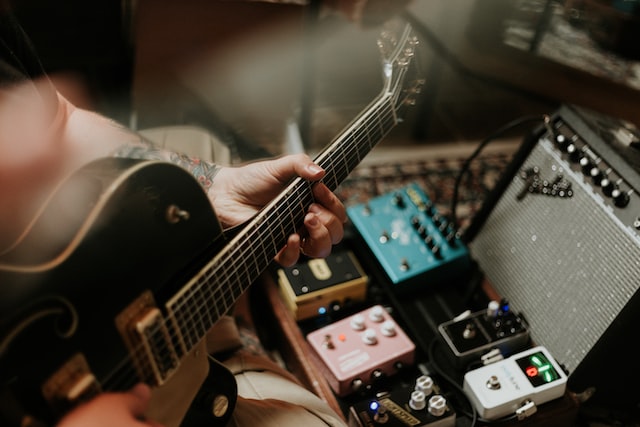David Pirner reveals why he wrote his ‘metaphor for depression’, while Tony Kaye recalls what inspired the video – which showed the faces of missing children and became a phenomenon
Dave Pirner, singer, songwriter
We were a garage punk band who recorded for an independent label and travelled in a van. Then I thought I was losing my hearing. I was having a sort of nervous breakdown and needed to get away from the noise. I started playing an acoustic guitar and ended up writing songs on it, one of which was Runaway Train. Initially it went “two souls laughing at the rain, one’s crazy and the other’s insane”. But once I started writing about what was going on with me, the proper words came in one sitting.
The first line, “Call you up in the middle of the night”, refers to a friend in New York who was kind enough to answer the phone whenever I called, no matter what time it was. I’d been fascinated by trains ever since I watched a TV show called Casey Jones when I was a kid, so I used a runaway train as a metaphor for depression that was spinning out of control. When we first played the song live at the University of Minnesota people loved it.
I took a practice-room tape to various labels in New York, and Columbia Records wanted us the most. We recorded Runaway Train with Michael Beinhorn, a great producer but highly demanding. If the vocal on it sounds world-weary, it’s because he made me sing it 100 times. He still hadn’t got what he wanted so he got Danny Murphy, our guitarist, to oversee the vocal session because he felt, correctly, I’d be more comfortable singing with a friend in there with me.
Replacing our drummer Grant Young during the session was an awful experience, but Sterling Campbell came in and I loved the way he played, so we asked him to play on Runaway Train and some other tracks. Then we went to a studio in LA and Booker T from the MGs put perfect keyboards on it. It was so cool having someone of that stature playing on my songs.
Runaway Train came out as the third single from our album Grave Dancers Union and just grew legs. It overshadowed everything else we did, but I’m pleased that the song has a resonance that is not about partying and screwing. It’s a sad and reflective song that reminds people that it’s not all candy out there, but that they’re not alone.
Runaway Train was such a great song I could have filmed a brown paper bag for three minutes and it still would have been a hit, but I’ve always tried to do things that have a social relevance . On the way home from my office in Los Angeles, I saw a poster by the side of the road of a milk carton with a missing kid’s face on it. I thought: “That’s it!” I told Dave that I wanted to make a video featuring the faces of runaway or missing children.
The National Center for Missing and Exploited Children sent us the faces of the kids they wanted in the video. Dave was very easy to film singing the song and at the end we had a message: “If you’ve seen these kids call this number.” The record company were very supportive, although after it was first shown on MTV, they called saying: “No kids have come back. Can we replace the faces with shots of the band?” I said: “No, wait.” Then one came back, and another, and another. And it turned into this miraculous thing.
The first to come home was Elizabeth Wiles, a teenager who’d run away from home with an older guy. She’d been watching TV with friends, seen herself in the Runaway Train video and called her mom. It wasn’t always plain sailing for the families afterwards – kids don’t run away from happy homes – but maybe things had changed when they went back or they were older and able to cope better.
I was in the green room of a TV chatshow when they reintroduced a missing kid and their parents, and they were just overwhelmed. Some cases were very sad – they didn’t come back because they were dead – but each time a kid was found, we’d recut the video with a new missing person. We eventually found 21 of the 36 kids we featured. It worked because the song was perfect for it. I’d argue that it was the single most important thing that happened in the history of MTV, because it saved young people’s lives.


